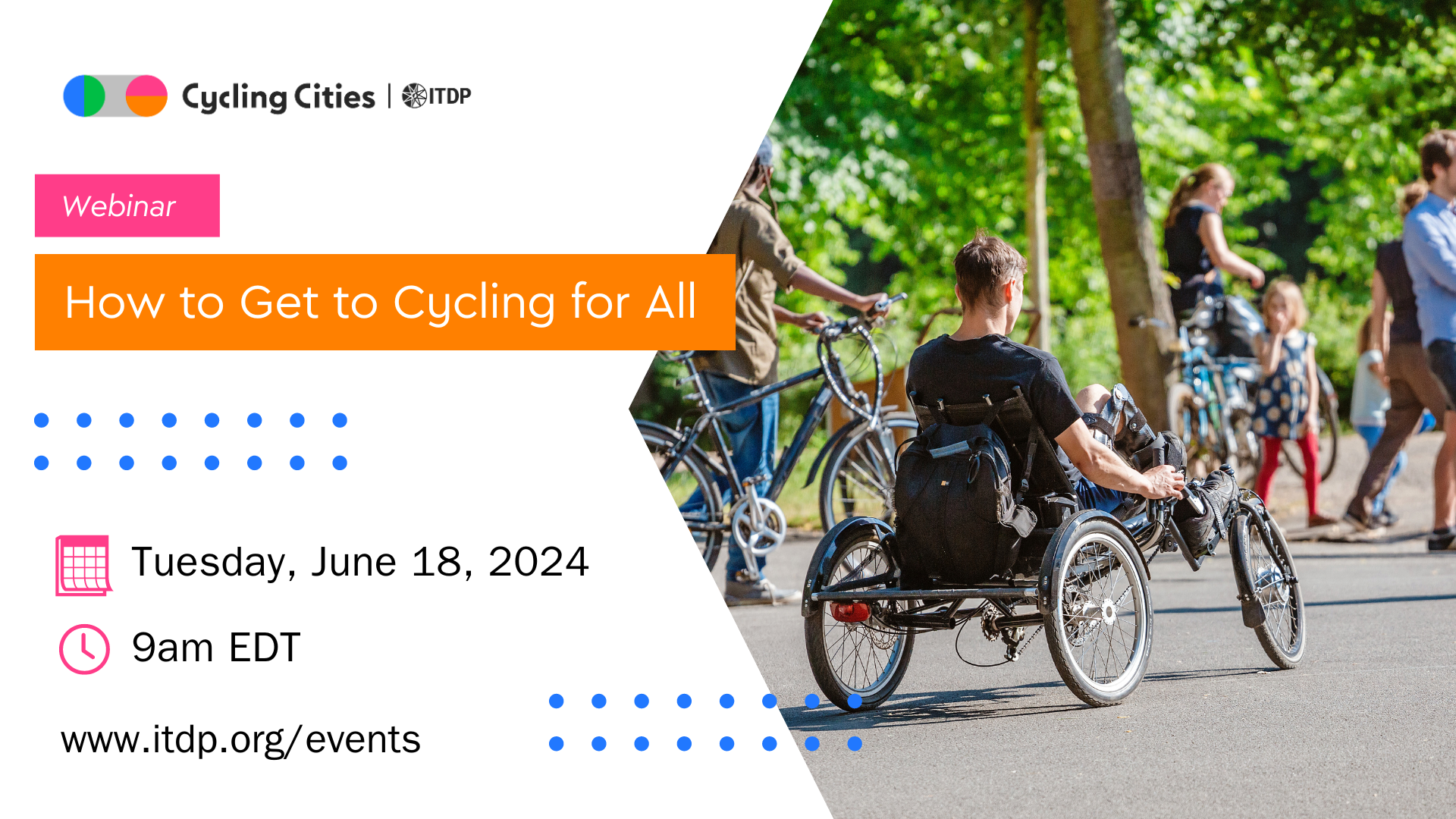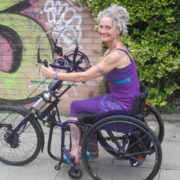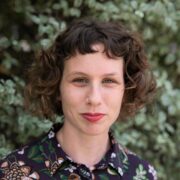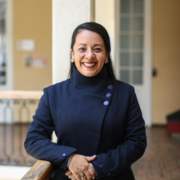Cycling Cities

While cycling offers unparalleled benefits for short and medium trips: improved physical health, fewer greenhouse gas emissions,and lower transport costs, significant obstacles stand in the way of its universal adoption. Systemic challenges prevent underserved groups like people with disabilities, children, women, and caregivers from enjoying the freedom and convenience of cycling. Exposing and empowering this latent demand is crucial to achieving cycling cities for all.
In this webinar, we will hear from advocates and experts about how to shift the narrative about who and for what types of trips cycling is for. By addressing infrastructure shortcomings, advocating for inclusive policies, and challenging societal norms, we can pave the way for a future where cycling is truly for everyone.
This event features interpretation in Spanish. Watch the Spanish recording here.
Resources:

Lorena Freitas (she/hers) joined ITDP in 2020 as a Travel Demand Management Coordinator. She has worked as a geographer and Geosciences Coordinator at the CEPERJ Foundation and was a member of the Centre of Transport and Tourism Strategic Planning – Planett / UFRJ, where she contributed to projects focused on active and sustainable mobility. In academia, Lorena has participated in research projects with the Ibero-American Network for the Study of Travel Generating Poles.
Lorena has a bachelor’s degree from the Federal University of Rio de Janeiro, and a master’s degree in Transport Engineering also from the Federal University of Rio de Janeiro.

Kasih, or as she prefers to be called, Noni, is a passionate advocate for sustainable urban planning and inclusive design. Noni completed her bachelor’s degree in Human Geography and Urban Planning at the University of Groningen, where she developed her love for creating livable, people-centric cities. Growing up in Jakarta, Noni realized that the city was designed primarily for cars and not for people, which inspired her to join ITDP in 2021 to help change that. Within ITDP, Noni is involved in various projects related to sustainable urban design and inclusivity. Her recent works include mainstreaming gender equity, disability, and social inclusion (GEDSI) in non-motorized transportation and electric vehicle projects, as well as tactical urbanism initiatives. When Noni isn’t busy with work, she can be found exploring Jakarta’s vibrant culinary scene, cooking up a storm, or spending quality time with her friends and family.

Dr Kay Inckle is Campaigns and Policy Manager for Wheels for Wellbeing, a Disabled people’s cycling organization who campaign for equal access to cycling, active travel and multi-modal journeys for Disabled people. She is a social scientist specializing in user-led, social justice and intersectional approaches to disability and mental health. She is also a wheelchair-user and handcyclist.

Hila is a Program Associate with the Streets for Kids team at the Global Designing Cities Initiative (GDCI), where she supports street transformations in multiple countries and projects that shape safer, healthier, and more enjoyable places for children, teens, and caregivers. Before joining GDCI, Hila worked for over six years as a Tel Aviv-based urban planner and project manager, where she worked with public agencies on people-first plans and policies while pursuing her academic interests in global urbanism, public space, and long-term change.

Deyanira has more than 21 years of experience in the public sector. Previously she has served as a Secretary of Mobility of Bogotá and a Director of Regional Mobility Agency and the first Deputy Director of Bicycles and Pedestrians. She has led and managed strategic projects for the city and the region, with extensive knowledge in sustainable mobility, women’s leadership, public policies and mobility planning tools.